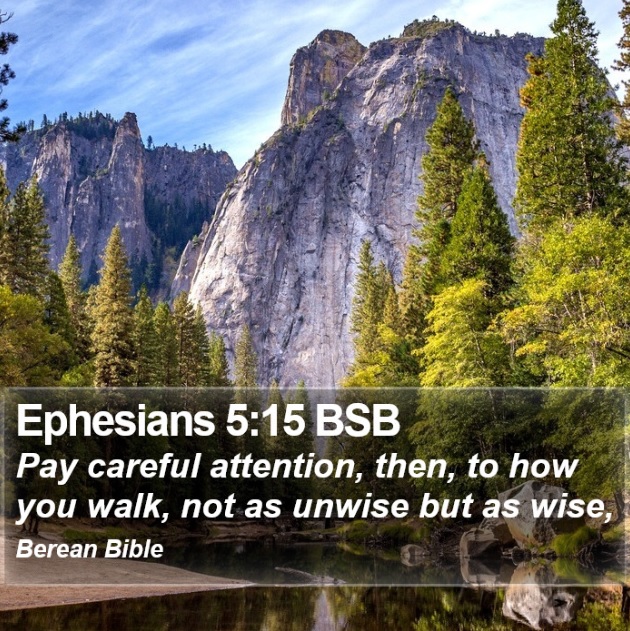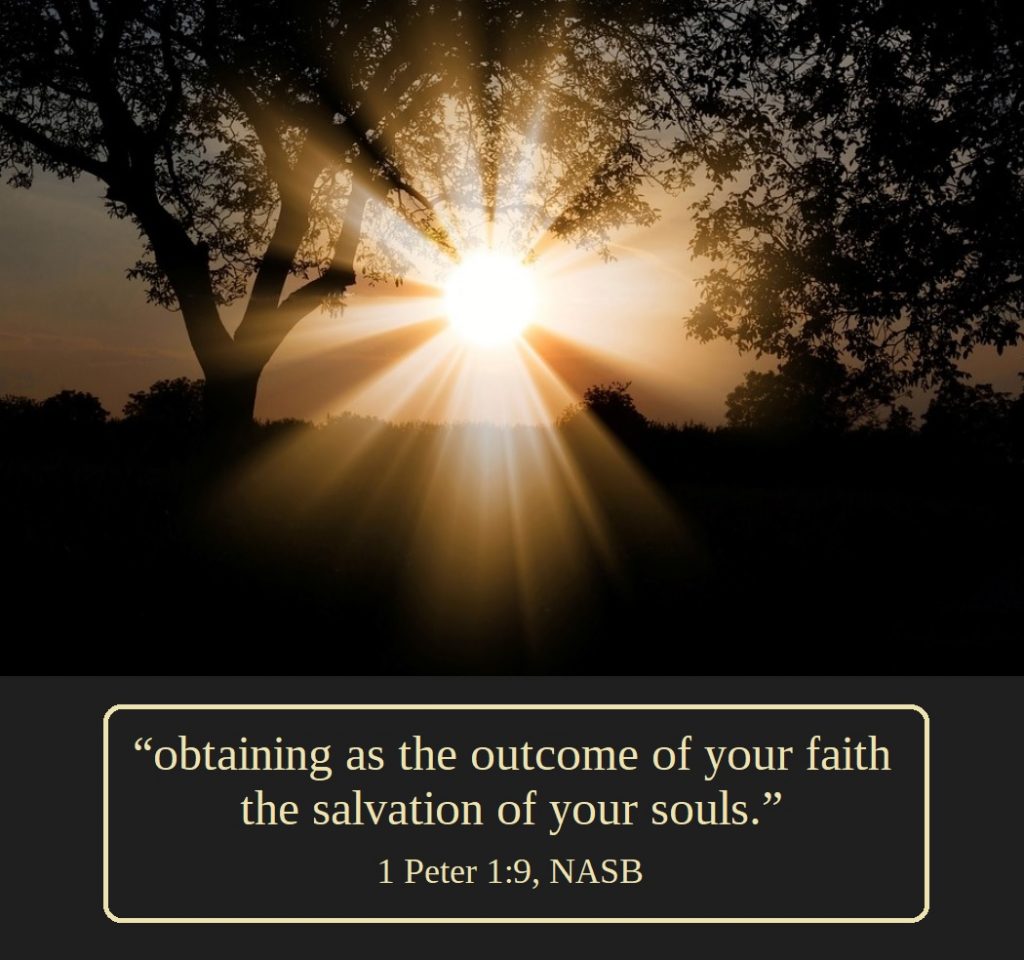“Go therefore and make disciples of all the nations…teaching them to observe all that I commanded you; and lo, I am with you always, even to the end of the age” (Matthew 28:19-20, NASB).
——————–
Contents
1) A Question About Good and Evil (Hoyt Houchen)
2) “Wouldn’t Be Prudent” (Bryan Gibson)
3) Sword Tips #19 (Joe R. Price)
——————–

-1-
A Question About Good and Evil
Hoyt Houchen
We read in Isaiah 45:7: “I form the light, and create darkness; I make peace, and create evil; I am Jehovah, that doeth all these things.” This verse raises the question: did God actually create only good?
God’s original creation was very good (Gen. 1:31). Also, we are told that God “cannot be tempted with evil, and he himself tempteth no man” (Jas. 1:13). Since God is moral (sinless), moral evil is contrary to His very nature. God, then, does not create moral evil.
In what sense does God create evil? The NASB translates Isaiah 45:7: “The one forming light and creating darkness, causing well-being and creating calamity; I am the Lord who does all this.” The word rendered by the NASB, “calamity,” is the Hebrew word rah, which basically means “evil” (either moral or misfortune evil). God is addressing Cyrus (v. 1), the Medo-Persian king who was later to “subdue kingdoms.” Specifically, he would capture Babylon because of the wickedness that prevailed in that city. God was using Cyrus as His instrument to inflict this punishment. The prophecy was uttered more than a hundred years before Cyrus was born, but it was all literally fulfilled. So, in view of the meaning of the Hebrew word in the verse, and the context of the verse, the word “evil” which God creates refers to the calamities as punishment upon wicked nations. God, therefore, does not create moral evil, but calamities or misfortunes come upon man as a result of his sin (see Ezek. 18:20; Rom. 5:12; 6:23; Jas. 1:14,15).
There are instances in the Old Testament when God brought calamity upon people as a result of their moral evil or wickedness. Because of wickedness, God destroyed the earth with water, sparing only Noah and his family (Gen. 6:5-8). God afflicted the Egyptians with ten plagues because of the hardness of Pharaoh’s heart (Ex. 7-12). God smote the Philistines with a great discomfiture and tumors while the Ark of the Covenant was among them (1 Sam. 5:9). Hell is created by God for those who are disobedient to His will (Matt. 25:41; 2 Thess. 1:7-9; Rev. 21:8; etc.) These are examples of evil which God created — calamity, adversity, misfortune — all punishment as a result of moral evil. He did not create the moral evil. God created man a free moral agent. When man violates God’s moral law, it is man, not God who is responsible for moral evil.
In 1 Samuel 16:14, we are told, “Now the Spirit of Jehovah departed from Saul, and an evil spirit from Jehovah troubled him.” This verse has posed a problem for some in that they assume that this is a cause of moral evil coming directly from God. But actually, Saul’s sin broke fellowship with God, and God allowed the evil spirit to trouble him. Again, this serves as an example of the evil consequences that come upon those guilty of sin or moral evil. The same truth is illustrated again in Saul’s case (1 Sam. 18:10). God is the author of moral law and He is also the author of consequences which follow because of the violation of that law (1 Jn. 3:4).
Not all physical disasters today such as floods, tornadoes and earthquakes are due to sin (Lk. 13:1- 5). Christians suffer in such calamities along with the wicked. Neither is it to be supposed that all suffering or affliction is the result of sin (see Jn. 9:2). In fact, Christians may suffer affliction as a means of chastisement (Heb. 12:7-9). Persecution is an example (2 Tim. 3:12). Chastisement of Christians should motivate them to greater faith. We all suffer misfortunes in life — illness, disappointments, loss of loved ones and many more, but the Christian looks forward to heaven where none of these exist. Men do often blame God for consequences which result from their moral evil.
A simple solution is not always found for the problem of evil in the world, but we do know that God does not create moral evil and we can always be assured that whatever God does is right and in harmony with His moral character (Gen. 18:25).
— Via Viewpoint from the Valley Grove church of Christ, October 9, 2022
——————–

-2-
“Wouldn’t Be Prudent”
Bryan Gibson
Prudent: 1) “…exercising sound judgment in practical matters…cautious or discreet in conduct; circumspect; not rash…” (Webster’s New World Dictionary); 2) “using good judgment to consider consequences and to act accordingly” (Encarta Online Dictionary). Synonyms: careful, cautious, discreet, wise, farsighted. Antonyms (opposites): reckless, foolish, simple, shortsighted.
Prudence became sort of a buzz word under President George H. W. Bush’s administration. “Not gonna do it, wouldn’t be prudent”—comedians would often use that line when they impersonated President Bush.
God talked about prudence, though, a long time before President Bush did; and it’s what He says that really piques my interest. Using His word, let’s look at some things it wouldn’t be prudent for us to do.
Wouldn’t be prudent to lose our cool, pop off, or fly off the handle, even when folks insult us. “Fools show their anger at once, but the prudent ignore an insult” (Proverbs 12:16, NRSV).
Wouldn’t be prudent to just talk all the time. “A prudent man conceals knowledge, but the heart of fools proclaims foolishness” (Proverbs 12:23). Wouldn’t be prudent, for a number of reasons, not the least of which is the increased likelihood of sin. “In the multitude of words, sin is not lacking, but he who restrains his lips is wise” (Proverbs 10:19).
Wouldn’t be prudent, especially in religious matters, to believe everything we hear—to direct our steps by what we think may be right, although we haven’t really checked to make sure. “The simple believes every word, but the prudent considers well his steps” (Proverbs 14:15). “Beloved, do not believe every spirit, but test the spirits…” (1 John 4:1). What would be prudent is to make certain that what we teach and practice is the truth. “The wisdom of the prudent is to understand his way, but the folly of fools is deceit” (Proverbs 14:8). “Do not be unwise, but understand what the will of the Lord is” (Ephesians 5:17).
Wouldn’t be prudent to close our ears to rebuke and correction, because we’ll just keep making the same mistakes over and over again. “A fool despises his father’s instruction, but he who receives correction is prudent” (Proverbs 15:5). “He who disdains instruction despises his own soul, but he who heeds rebuke gets understanding” (Proverbs 15:32).
Wouldn’t be prudent to ignore spiritual red flags—places, people, situations that might endanger our soul. “A prudent man foresees evil and hides himself, but the simple pass on and are punished” (Proverbs 22:3).
Wouldn’t be prudent for us to take prudence too far, to be so careful that we never get anything done. “He who observes the wind will not sow, and he who regards the clouds will not reap” (Ecclesiastes 11:4). Let’s not confuse prudence with inactivity.
— Via Plain Words from God’s Word, June 25, 2024
——————–

-3-
“And take…the sword of the Spirit which is the word of God” (Eph. 6:17).
Sword Tips #19
Joe R. Price
Blessed are the peacemakers: for they shall be called the children of God. (Matthew 5:9)
The Son of God is the Prince of Peace. Peace is made between man and God when sins are forgiven, and Jesus Christ makes that possible (read Eph. 2:14-18). Peace is the absence of conflict plus the presence of harmony. Christ removes the conflict of sin and reconciles sinners to God. Christians have peace, and love peace.
Don’t settle for a “ceasefire” with your husband, your wife, your child, your parent, your co-worker or your neighbor. Take the initiative and be a peacemaker. Act to settle the conflict and restore the harmony.
Be a child of God.
——————–
The Steps That Lead to Eternal Salvation
1) Hear the gospel — for that is how faith comes (Rom. 10:17; John 20:30-31).
2) Believe in the deity of Jesus Christ, the Son of God (John 8:24; John 3:18).
3) Repent of sins. For every accountable person has sinned (Romans 3:23; Romans 3:10), which causes one to be spiritually dead (Ephesians 2:1) and separated from God (Isaiah 59:1-2; Romans 6:23). Therefore, repentance of sin is necessary (Luke 13:5; Acts 17:30). For whether the sin seems great or small, there will still be the same penalty for either (Matt. 12:36-37; 2 Cor. 5:10) — and even for a lie (Rev. 21:8).
4) Confess faith in Christ (Rom. 10:9-10; Acts 8:36-38).
5) Be baptized in water for the remission of sins (Mark 16:16; Acts 2:38; 22:16; 1 Pet. 3:21). This is the final step that puts one into Christ (Gal. 3:26-27). For from that baptism, one is then raised as a new creature (2 Cor. 5:17), having all sins forgiven and beginning a new life as a Christian (Rom. 6:3-4). For the one being baptized does so “through faith in the working of God” (Col. 2:12). In other words, believing that God will keep His word and forgive after one submits to these necessary steps. And now as a Christian, we then need to…
6) Continue in the faith by living for the Lord; for, if not, salvation can be lost (Matt. 24:13; Heb. 10:36-39; Rev. 2:10; 2 Pet. 2:20-22).
——————–
Tebeau Street
CHURCH OF CHRIST
1402 Tebeau Street, Waycross, GA 31501
Sunday: 9 a.m. Bible Classes and 10 a.m. Worship Service. Congregational Song Service: 5 p.m. for every first Sunday of the month.
Wednesday: 7 p.m. Bible Classes
evangelist/editor: Tom Edwards (912) 281-9917
Tom@ThomasTEdwards.com
https://thomastedwards.com/go/all.htm (This is a link to the older version of the Gospel Observer website, but with bulletins going back to March 4, 1990.)









